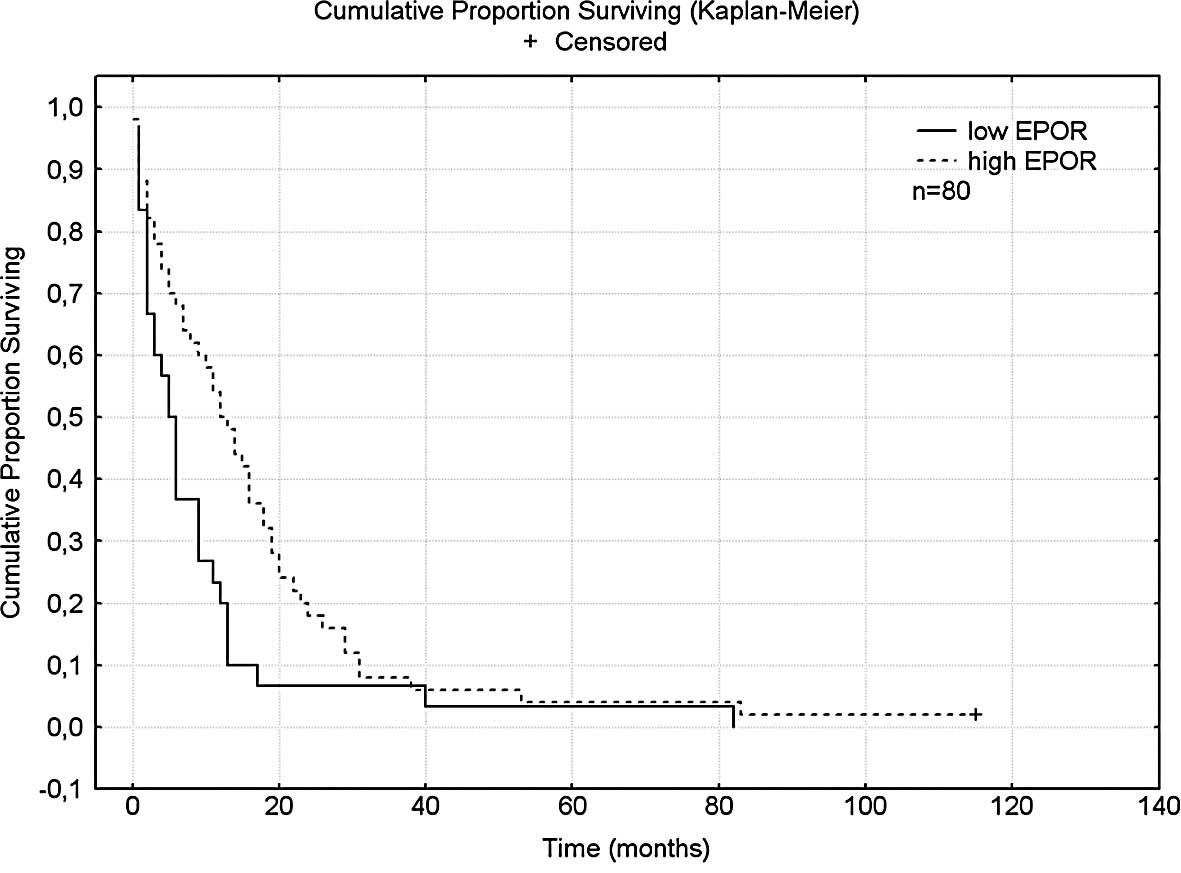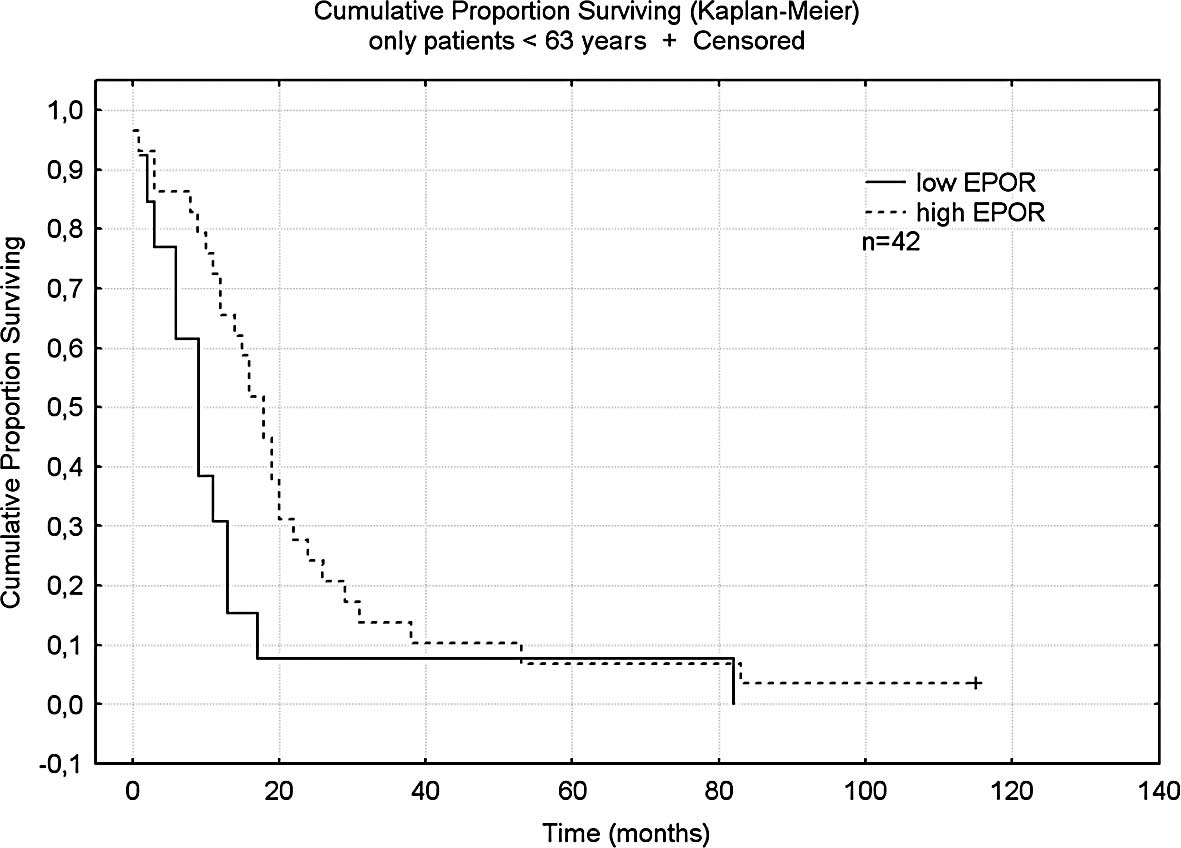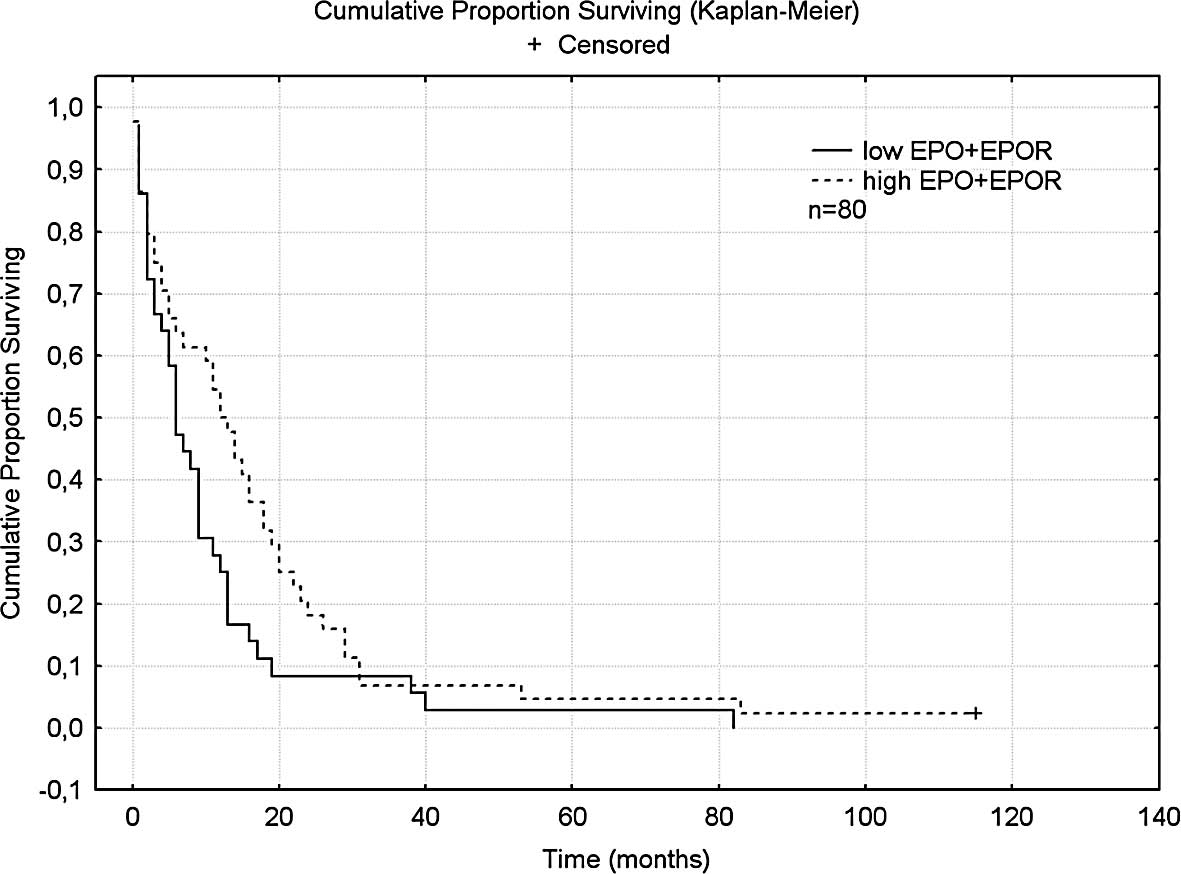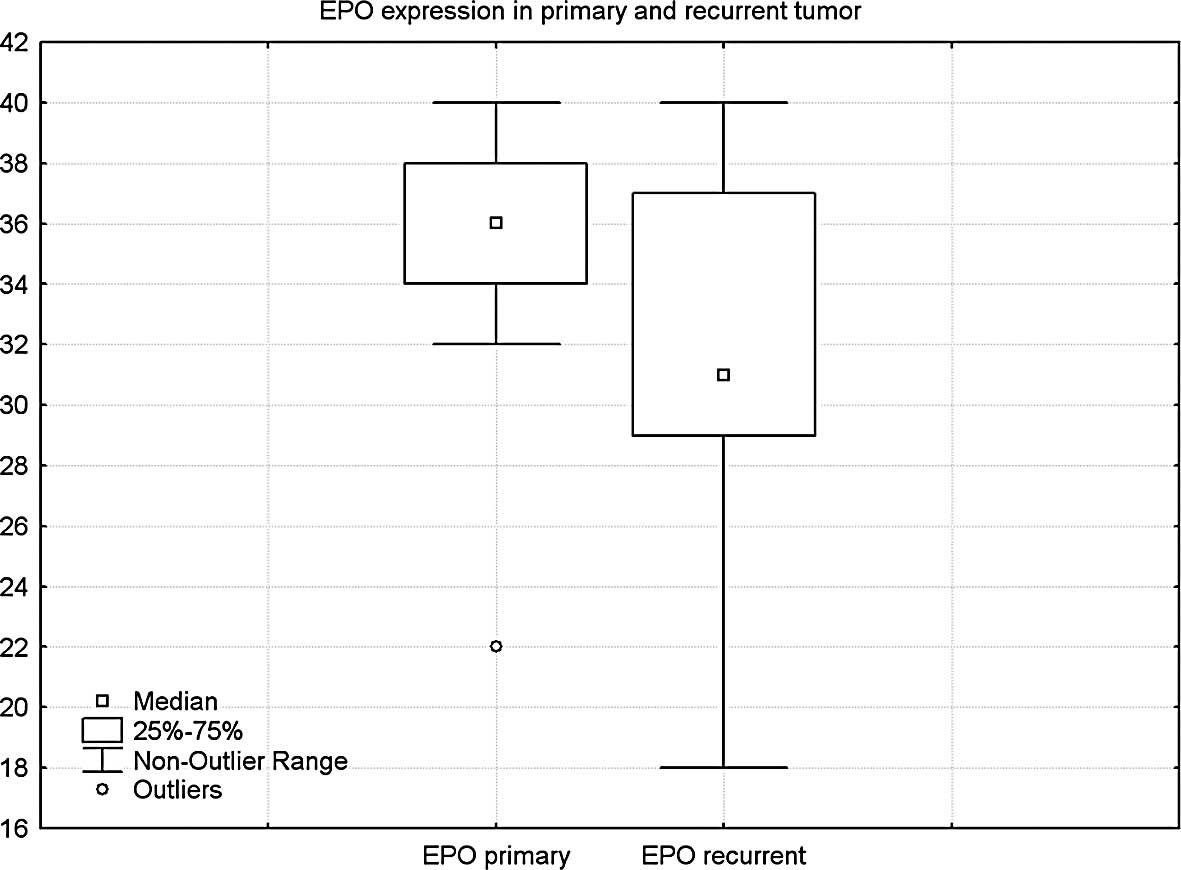|
1.
|
Davis FG, McCarthy BJ, Freels S, Kupelian
V and Bondy ML: The conditional probability of survival of patients
with primary malignant brain tumors: surveillance, epidemiology,
and end results (SEER) data. Cancer. 85:485–491. 1999. View Article : Google Scholar : PubMed/NCBI
|
|
2.
|
Stupp R, Mason WP, van den Bent MJ, et al:
Radiotherapy plus concomitant and adjuvant temozolomide for
glioblastoma. N Engl J Med. 352:987–996. 2005. View Article : Google Scholar : PubMed/NCBI
|
|
3.
|
Erbayraktar S, de Lanerolle N, de
Lotbiniere A, et al: Carbamylated erythropoietin reduces
radiosurgically-induced brain injury. Mol Med. 12:74–80. 2006.
View Article : Google Scholar : PubMed/NCBI
|
|
4.
|
Mulcahy L: The erythropoietin receptor.
Semin Oncol. 28:19–23. 2001. View Article : Google Scholar
|
|
5.
|
Sasaki R, Masuda S and Nagao M:
Erythropoietin: multiple physiological functions and regulation of
biosynthesis. Biosci Biotechnol Biochem. 64:1775–1793. 2000.
View Article : Google Scholar : PubMed/NCBI
|
|
6.
|
Leyland-Jones B: Evidence for
erythropoietin as a molecular targeting agent. Semin Oncol.
29:145–154. 2002. View Article : Google Scholar : PubMed/NCBI
|
|
7.
|
Nakamura Y, Komatsu N and Nakauchi H: A
truncated erythropoietin receptor that fails to prevent programmed
cell death of erythroid cells. Science. 257:1138–1141. 1992.
View Article : Google Scholar : PubMed/NCBI
|
|
8.
|
Khan FA, Shukla AN and Joshi SC: Anaemia
and cancer treatment: a conceptual change. Singapore Med J.
49:759–764. 2008.PubMed/NCBI
|
|
9.
|
Smith RE Jr: Erythropoietic agents in the
management of cancer patients. Part 2: studies on their role in
neuroprotection and neurotherapy. J Support Oncol. 2:39–49.
2004.PubMed/NCBI
|
|
10.
|
Berdel WE, Oberberg D, Reufi B and Thiel
E: Studies on the role of recombinant human erythropoietin in the
growth regulation of human nonhematopoietic tumor cells in vitro.
Ann Hematol. 63:5–8. 1991. View Article : Google Scholar
|
|
11.
|
Mohyeldin A, Dalgard CL, Lu H, et al:
Survival and invasiveness of astrocytomas promoted by
erythropoietin. J Neurosurg. 106:338–350. 2007. View Article : Google Scholar : PubMed/NCBI
|
|
12.
|
Molls M, Stadler P, Becker A, Feldmann HJ
and Dunst J: Relevance of oxygen in radiation oncology. Mechanisms
of action, correlation to low hemoglobin levels. Strahlenther
Onkol. 174:13–16. 1998.PubMed/NCBI
|
|
13.
|
Kelleher DK, Mattheinsen U, Thews O and
Vaupel P: Blood flow, oxygenation, and bioenergetic status of
tumors after erythropoietin treatment in normal and anemic rats.
Cancer Res. 56:4728–4734. 1996.PubMed/NCBI
|
|
14.
|
Brizel DM, Sibley GS, Prosnitz LR, Scher
RL and Dewhirst MW: Tumor hypoxia adversely affects the prognosis
of carcinoma of the head and neck. Int J Radiat Oncol Biol Phys.
38:285–289. 1997. View Article : Google Scholar : PubMed/NCBI
|
|
15.
|
Höckel M, Schlenger K, Aral B, Mitze M,
Schaffer U and Vaupel P: Association between tumor hypoxia and
malignant progression in advanced cancer of the uterine cervix.
Cancer Res. 56:4509–4515. 1996.PubMed/NCBI
|
|
16.
|
Ning S, Hartley C, Molineux G and Knox SJ:
Darbepoietin alpha potentiates the efficacy of radiation therapy in
mice with corrected or uncorrected anemia. Cancer Res. 65:284–290.
2005.PubMed/NCBI
|
|
17.
|
Pinel S, Barberi-Heyob M, Cohen-Jonathan
E, Merlin JL, Delmas C, Plenat F and Chastagner P:
Erythropoietin-induced reduction of hypoxia before and during
fractionated irradiation contributes to improvement of
radioresponse in human glioma xenografts. Int J Radiat Oncol Biol
Phys. 59:250–259. 2004. View Article : Google Scholar
|
|
18.
|
Thews O, Koenig R, Kelleher DK, Kutzner J
and Vaupel P: Enhanced radiosensitivity in experimental tumours
following erythropoietin treatment of chemotherapy-induced anaemia.
Br J Cancer. 78:752–756. 1998. View Article : Google Scholar : PubMed/NCBI
|
|
19.
|
Westphal G, Niederberger E, Blum C, et al:
Erythropoietin and G-CSF receptors in human tumor cells: expression
and aspects regarding functionality. Tumori. 88:150–159.
2002.PubMed/NCBI
|
|
20.
|
Hassouna I, Sperling S, Kim E, et al:
Erythropoietin augments survival of glioma cells after radiation
and temozolomide. Int J Radiat Oncol Biol Phys. 72:927–934. 2008.
View Article : Google Scholar : PubMed/NCBI
|
|
21.
|
Mittelbronn M, Capper D, Bunz B, et al: De
novo erythropoietin receptor (EPO-R) expression in human neoplastic
glial cells decreases with grade of malignancy but is favourably
associated with patient survival. Neuropathol Appl Neurobiol.
33:299–307. 2007. View Article : Google Scholar
|
|
22.
|
Henke M, Laszig R, Rube C, et al:
Erythropoietin to treat head and neck cancer patients with anaemia
undergoing radiotherapy: randomised, double-blind,
placebo-controlled trial. Lancet. 362:1255–1260. 2003. View Article : Google Scholar
|
|
23.
|
Leyland-Jones B, Semiglazov V, Pawlicki M,
et al: Maintaining normal hemoglobin levels with epoetin alfa in
mainly nonanemic patients with metastatic breast cancer receiving
first-line chemotherapy: a survival study. J Clin Oncol.
23:5960–5972. 2005. View Article : Google Scholar
|
|
24.
|
Bohlius J, Wilson J, Seidenfeld J, et al:
Recombinant human erythropoietins and cancer patients: updated
meta-analysis of 57 studies including 9353 patients. J Natl Cancer
Inst. 98:708–714. 2006. View Article : Google Scholar : PubMed/NCBI
|


















